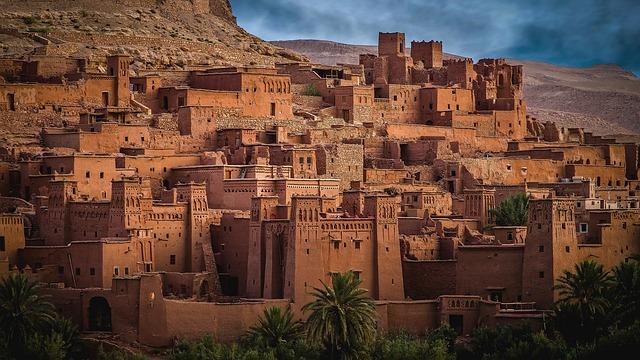As the global economy grapples with unprecedented disruptions and shifting alliances, morocco finds itself at a pivotal crossroads.Positioned at the gateway between Europe, Africa, and the Middle East, this North african nation has increasingly attracted attention as a potential battleground in an escalating global trade war. With major powers reevaluating their trade policies and seeking new markets to safeguard their interests, Morocco’s strategic location and burgeoning industries may catapult it into the center of international trade dynamics. Drawing insights from Chatham House, this article delves into the complexities of morocco’s trade landscape, examining how the country’s economic ties with both traditional partners and emerging economies could influence its role on the global stage amidst rising tensions and competition. As we explore the implications of shifting trade paradigms, we will uncover whether Morocco is destined to become a frontline in the contest for economic dominance or if it can leverage its position to emerge as a neutral player in a polarized world.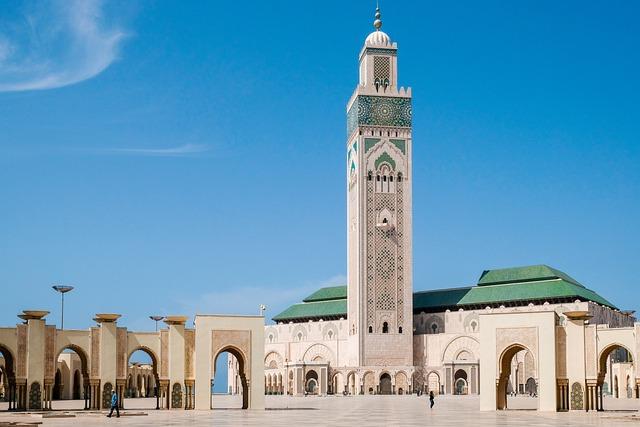
The Strategic geopolitical Position of Morocco in Global Trade Dynamics
The geographic location of Morocco places it at the crossroads of Europe, Africa, and the Middle east, making it a strategic hub for global trade. Its proximity to major shipping routes, especially the Strait of Gibraltar, enhances its importance in maritime logistics. The country has actively worked to establish itself as a vital player in both African and European markets thru various initiatives, including the development of free trade agreements with nations like the United states and the European Union. Morocco’s bustling ports, such as Tangier-Med, facilitate efficient cargo movement, positioning it as a preferred gateway for goods entering and leaving Africa.
Furthermore, Morocco’s investment in infrastructure development, such as highways and rail systems, signals its ambition to bolster its trade capabilities. The country is also strategically positioning itself as a manufacturing center, promoting sectors like automotive and aerospace, aimed at seizing a larger share of global supply chains. With increasing tensions in international trade, Morocco could potentially play a moderating role within the shifting dynamics of global commerce. Key factors affecting its position include:
- Trade partnerships with both the EU and Africa
- Political stability,providing a secure environment for investment
- Efforts to enhance connectivity via improved logistics infrastructure
- growing sectors such as renewable energy and technology
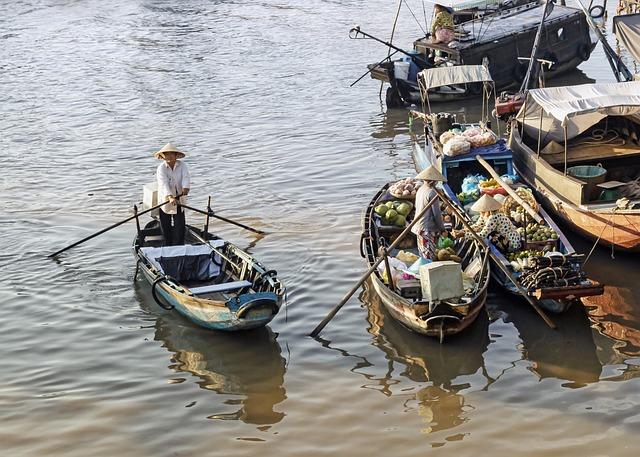
Analyzing the Impact of Trade Policies on Morocco’s Economic Landscape
The recent shifts in global trade dynamics demand a closer look at how Morocco’s economy might be influenced. as the nation positions itself as a vital hub for trade between Europe, Africa, and the Middle East, it faces the dual challenge of attracting foreign investments while navigating the complexities introduced by evolving trade policies. The country‚Äôs strategic location offers a plethora of opportunities in sectors like automotive, agriculture, and textiles, yet the volatility of international relations can create an unstable environment for growth. Some key areas of concern include:
- Trade Agreements: Morocco has established various free trade agreements,notably with the EU and the US,wich enhance its export potential but also expose it to competition.
- Tariff Changes: Fluctuating tariffs emerging from trade disputes could impair Moroccan products’ competitiveness in global markets.
- Investment Climate: Uncertainty in the global trade environment may deter foreign investment, which is crucial for continued economic growth.
On the flip side, Morocco can leverage its status as a low-cost manufacturing hub in the context of a potential trade war. By diversifying its export markets and enhancing trade relations with countries outside of traditional partners, Morocco could mitigate the adverse effects of trade tensions. For instance, the current trade landscape presents chances for:
| Opportunity | Potential Impact |
|---|---|
| Increased African Integration | Greater access to emerging markets. |
| Investment in Renewable Energy | Attracts foreign capital and promotes sustainability. |
| Diversification of Exports | Reduces dependence on specific markets and products. |
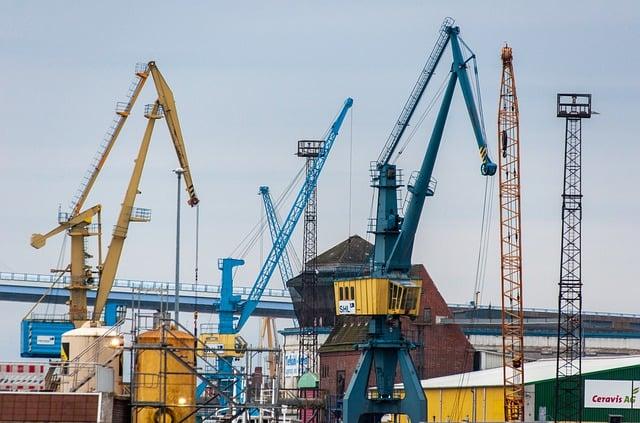
Potential Risks and Opportunities for moroccan Industries Amid Global Tensions
The intricate web of global tensions presents both risks and opportunities for Moroccan industries. This North African nation, strategically located at the crossroads of Europe, Africa, and the Middle East, finds itself in a unique position. As trade barriers rise and nations turn inwards, Morocco can leverage its status as a stable investment destination. Its well-established connections through Free Trade Agreements (FTAs) with the European Union, United States, and African nations could serve as a important advantage, allowing exporters to access multiple markets with reduced tariffs. Additionally, as multinational companies seek to diversify their supply chains away from conflict zones, Morocco’s relatively stable political climate and investment incentives could attract foreign capital aimed at manufacturing and agriculture sectors.
Conversely, the current geopolitical climate could expose Moroccan industries to various challenges. The potential for further trade disputes might limit Morocco’s ability to export certain goods,particularly if its partners engage in retaliatory tariffs. Moreover, the ongoing fluctuations in global demand could negatively affect key sectors such as phosphates, textiles, and automotive manufacturing.Businesses may also face increased operational costs due to higher raw material prices resulting from external trade disruptions. Considering these challenges, understanding the fluctuating landscape of international trade dynamics becomes imperative for local industries to navigate risks effectively and capitalize on emerging opportunities.
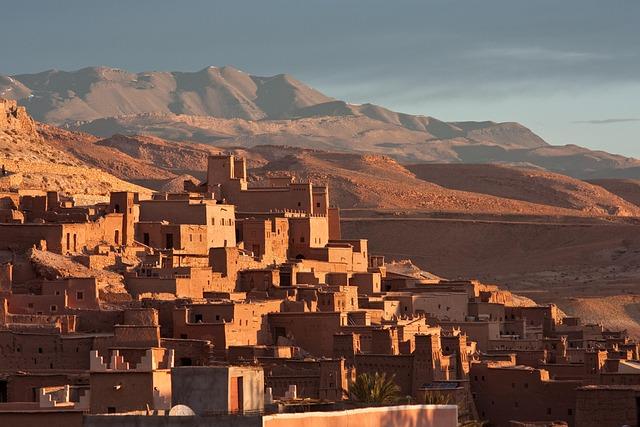
Recommendations for Strengthening Morocco’s Trade Resilience and Competitiveness
To bolster its trade resilience and enhance competitiveness, Morocco can adopt a multi-faceted approach that focuses on both domestic reforms and international collaboration. Strengthening local industries should be a priority, particularly in sectors like agriculture, textiles, and renewable energy, where Morocco holds significant potential.The government could implement various incentives, such as subsidies and tax breaks, to encourage innovation and investment in these industries.Furthermore, developing robust supply chain networks to minimize dependency on external markets will be crucial, as it enhances stability in times of global uncertainty.
Equally critically important is the expansion of trade partnerships. Morocco should actively seek new bilateral and multilateral agreements, particularly with emerging economies that are less affected by global trade tensions. Efforts to diversify export markets can reduce vulnerability and foster sustainable economic growth. Additionally, investing in digital infrastructure can facilitate smoother transactions and access to international markets.Implementing policies that support skills development and workforce training will ensure that the Moroccan labor force is poised to meet the demands of a changing global landscape, ultimately reinforcing the country’s position in international trade.

The Role of International Partnerships in Navigating Trade Conflicts
International partnerships play a crucial role in mitigating the impacts of trade conflicts and fostering economic stability. As nations grapple with tariffs, sanctions, and trade barriers, collaborative efforts can facilitate dialogue and reduce tensions. Countries like morocco, strategically positioned between Europe and Africa, stand to benefit from forging alliances that can create pathways for trade diversification. By engaging in multilateral agreements, Morocco can enhance its competitiveness and resilience, especially amid fluctuating global markets. These partnerships are not just beneficial; they are essential for countries that wish to thrive in an increasingly protectionist world.
Moreover, such collaborations can help Morocco navigate the complex dynamics of global trade while attracting foreign investment. Key factors include:
- Access to New Markets: Partnerships with nations outside of traditional trade allies can open doors to emerging markets.
- Technology Transfer: collaborations often involve the sharing of technological advancements, aiding local industries.
- Risk Mitigation: A diverse trade network can cushion economies against the fallout of unilateral trade disputes.
Through regional and international alliances, Morocco can establish itself as a mediator in trade negotiations, positioning itself as a vital player rather than just a participant in the unfolding narrative of global trade.

Future Scenarios: How Morocco Can Position Itself in a Shifting Trade Environment
As tensions rise in the global trade arena, Morocco stands at a critical juncture where it can leverage its strategic geographic position and existing trade agreements to carve out a niche for itself.By enhancing its role as a gateway between Europe, Africa, and the Middle East, Morocco can attract investment and foster trade partnerships that bolster its economy. This would require not only maintaining favorable relations with traditional partners but also seeking new alliances, particularly in emerging markets.
To excel in this shifting landscape, Morocco can focus on several key areas:
- Diversifying Trade Partners: By strengthening ties with both established economies like the EU and burgeoning markets in Asia and Africa, Morocco can mitigate risks associated with reliance on a single or limited trade partners.
- Boosting Export Capabilities: Investing in sectors such as renewable energy, agriculture, and technology can enhance Morocco’s export profile, making its goods more competitive globally.
- Improving Infrastructure: Enhancing transportation and logistics infrastructure would facilitate smoother trade flows, essential for capitalizing on Morocco’s strategic location.
| Strategy | expected Benefit |
|---|---|
| Diversification of Markets | Reduced vulnerability to trade disputes |
| Sector Investments | Increased competitiveness in global markets |
| Infrastructure Development | Improved trade efficiency |
Final Thoughts
the prospect of Morocco emerging as a battleground in a global trade war carries significant implications, not only for the nation itself but also for the broader geopolitical landscape. As global economic tensions escalate, Morocco’s strategic location and its role within various trade agreements position it as a pivotal player in the shifting dynamics of international commerce. policymakers and stakeholders will need to navigate these complexities with vigilance, balancing the interests of domestic growth and international relations.
As trade barriers rise and nations recalibrate their economic strategies, morocco stands at a crossroads. The decisions made in the coming months will undoubtedly reflect its capacity to leverage its unique advantages while mitigating potential risks associated with external pressures. Observers and experts alike will be watching closely to see how Morocco’s government and its business community respond to these challenges,determining whether the country will capitalize on opportunities or find itself caught in the crossfire of a broader trade conflict.
ultimately, the stakes are high, and the outcomes are uncertain. What remains clear is that Morocco’s actions in the face of global trade tensions will have lasting repercussions, not just for its own future, but for the intricate tapestry of global trade as a whole. As this situation evolves, continued analysis will be essential to grasp the full impact of Morocco’s potential role as a focal point in the unfolding narrative of international trade.

